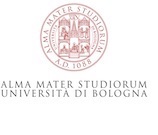ANNALISA PELLIZZAProcessing Alterity, Enacting Europe.
|
|
|
Ever since Thomas Kuhn shed light on the socialization practices of scientists (1962) and David Bloor extended the principle of symmetry to scientific arguments (1976, later expanded in the 1980s by actor-network theory), the social studies of science and technology (STS) have paid particular attention to the porousness of the boundary between humans and non-humans, the social and the technical. One of their most prolific strands has contributed with a situated, materialist and relational approach to digital knowledge production, circulation and re-use (e.g., Haraway 1988; Suchman 1993). Digital technology has been understood as the co-production of social dynamics and affordances inscribed in data infrastructures (Bowker and Star 1999). With a famous expression, "technology is society made durable" (Latour 1991). How does such a relational, co-productionist approach speak to political formations and imaginations? In this workshop we suggest that a similarly co-productionist stance can be adopted between the Technological and the Political. This argument is exemplified against research conducted by prof. Pelizza on the digitization of population registries across Europe. Indeed, population data is one of the most fundamental informational assets of the modern nation-state. Once such datasets are digitized and made interoperable, what changes for the order of authority? This is even more relevant when it comes to data of non-European populations in a European supra- national environment. The workshop draws upon evidence from the ongoing Processing Citizenship project on the digital registration and identification of migrants in Europe (http://processingcitizenship.eu). Students will be prompted to actively reflect on the technical vs. social binary, as well as on regimes of inclusion and exclusion entailed by digital infrastructures for non-European population registration. Eventually, they will realize the simultaneous enactment of Alterity and emergent European orders in the context of migration management. Annalisa Pellizza is Professor of Science and Technology Studies (STS) at the University of Bologna, where she holds the Chair in Sociology of Communicative Processes. Before joining Bologna, she was Associate Professor at the Science, Technology and Policy Studies department of the University of Twente, where she is now Visiting Professor. Prof. Pelizza’s research focuses on how governance by data infrastructures reshapes modern institutions. Her “vectorial” conceptualization of socio-technical change tackles information systems as both methodological entry points and actors performing new socio-political orders. As methodological resources, studying information systems allows uncovering broader but unnoticed transformations buried in technical minutiae. As actors, information systems invisibly shape long-term changes in the modern order of authority. |




